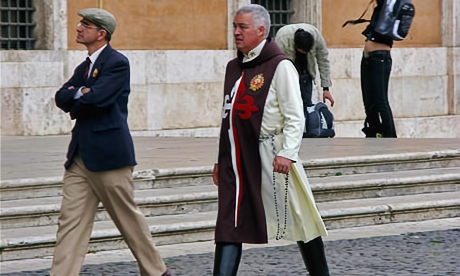The quest for perfection can never been attained in any endeavor worthy of humans.
The demand for being perfect, based on Matthew 5:14, “Be ye therefore perfect as your heavenly Father is perfect,” became the deranged and deranging discipline that was brought to an end by Vatican II’s healthier attitude toward spiritual growth.
One of the great, largely unseen and surely unsung tragedies of the old church to which Pope Benedict XVI’s “Reform of the Reform” triumphantly proposes to return us was that of good-hearted and willing young men and women sacrificing their spontaneity and zest for life on the altar, more pagan than Christian, of trying to follow the Rule of Life that their superiors insisted was the perfect expression of God’s will for them.
No wonder docility was the virtue dearest to the hearts of superiors in those days.
“Keep the Rule,” they would say in one of their most addled dicta, “and the Rule will keep you.”
Good-hearted young men and women thought these superiors, like the restored professional referees, knew what they were doing when they told them that spiritual perfection lay in following the rules — most of them more like traffic regulations than spiritual insights — that covered almost every waking moment in the lives of seminarians and aspirants to religious orders.
The seminary I attended instructed students with a solemnity unrelieved by irony, “Never appear at the window without your cincture on.”
Those who broke any of the rules, mostly by doing something healthy, such as talking to another human being during imposed periods of strict silence, had to report themselves to their superiors. In its most baroque form, this took place at a Chapter of Faults, a public event, in which candidates could accuse themselves, and sometimes others, of rule infractions.
Being a seminarian or a novice in these circumstances was the closest thing to being an innocent bystander at the collision of inhuman but supposedly “perfect” spiritual nonsense with human and reassuringly imperfect common sense.
The so-called “Reform of the Reform” would love to bring back this idea that religion imposes some quest for perfection on us.
That is an illusion akin to the notion that the professional football referees will call every play perfectly.
Instant replay was only introduced when fans, owners and sportswriters complained that the professional referees made too many mistakes in their calls on the field.
The quest for perfection, which has no real application in the spiritual life, calls for a reach that is always beyond our grasp. Even instant replay, through which plays are examined from all angles in slow motion and in freeze-frame, does not always get it right. Continue reading
